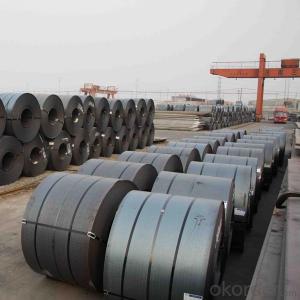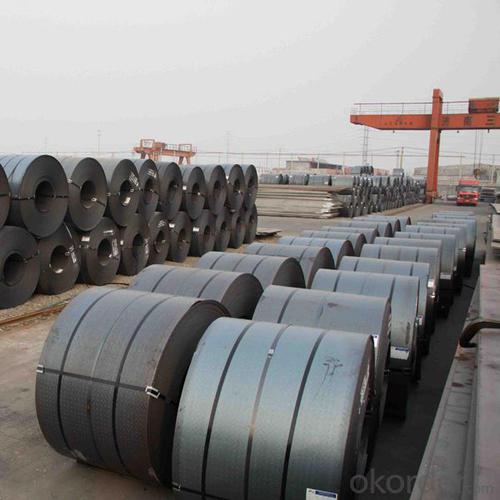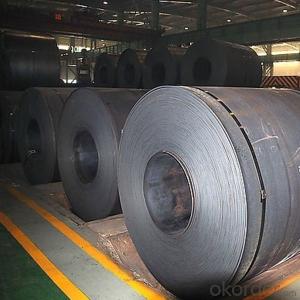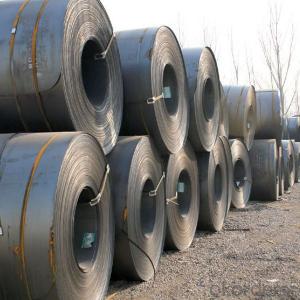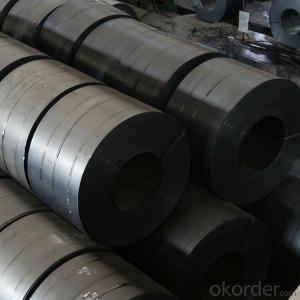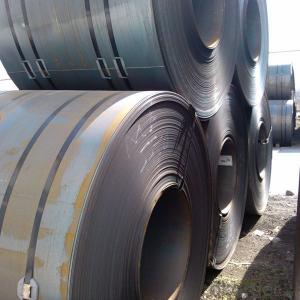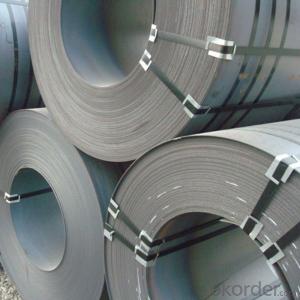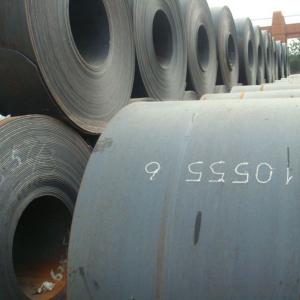Hot Rolled Steel Sheets SS400 From China With High Quality
- Loading Port:
- Tianjin
- Payment Terms:
- TT OR LC
- Min Order Qty:
- 28 m.t.
- Supply Capability:
- 100000 m.t./month
OKorder Service Pledge
OKorder Financial Service
You Might Also Like
Specification
DESCRIPTION:
GRADE: SS400, ASTM A36, A572, ST37,ST52, Q195, Q215, Q235,Q345, S235JR etc.
STANDARD: GB/T709-2006, ASTM A36, JIS G3101, DIN EN 10025, SAE 1045, ASTM A570
SPEC: 1)Width: 600-2500mm or 1000,1050,1250,1500,1800,2000mm
2)Thickness:1.5mm-200mm or as customers’ special requirements;
3)Length: 2-12m or as customers’ special requirements
PACKING:
1.Big thickness:by bulk vessel
2.Small thickness:packed by steel strips and shipped by container
3.According to the requirements of customers'
TRADE TERMS :FOB, CFR, CIF
DETAILED PICTURES FOR STEEL COILS
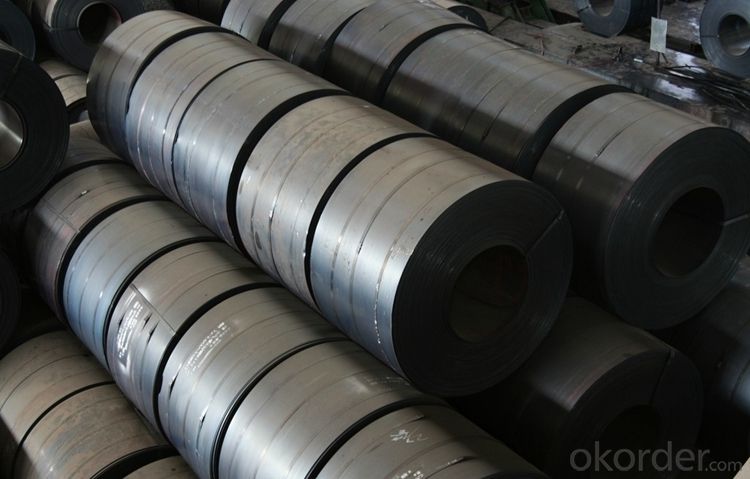
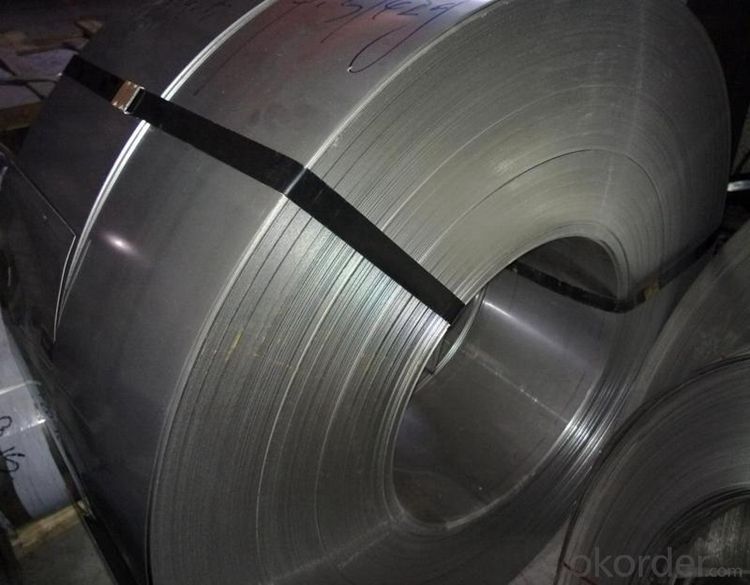
EXPORT MARKET FOR STEEL COILS/SHEETS
Our target market is the international market. Every year we export most of products to countries like India, Pakistan, South Korea, Brazil, Australia, South Africa, Spain, Sri Lanka, Taiwan, Hong Kong, etc.
OUR SERVICE
1.High quanlity and reasonable price.
2.Customized on-demand.
3.Reasonable shipping and fast delivery.
4.Free sample.
FAQ
Q:How to order?
A: Please send us your purchase order by email or fax .or you can ask us to send you a proforma invoice for your order .We need to know the following information for your order.
1) Shipping information-company name, street address, phone number, fax number, destination sea port
2) Product information – Quantity, Specification (steel type, thickness, width, surface finish)
3) Delivery time required
4) Forwarder's contact details if there's any in China
FAQ
Q:What are the advantages of your company ?
A: We have many professionals, technical personnel, more competitive prices and best after-dales service than other steel companies.
Q:Can you arrange the shipment ?
A: Sure we can help you with the shipment. We have forwarders who have cooperated with us for many years.
- Q: Can steel sheets be used for construction formwork or molds?
- Certainly, construction formwork or molds can utilize steel sheets, although their usage may not be as prevalent as materials like plywood or timber. Robust and enduring, steel sheets offer a sleek and uniform surface for concrete casting. They prove especially fitting for expansive construction ventures demanding formwork capable of withstanding immense pressures and loads. Additionally, steel sheets can be tailor-made and manufactured to meet precise project specifications, affording versatility in terms of shape, size, and arrangement. Nevertheless, the cost, weight, and accessibility of steel sheets should be weighed against alternative formwork materials prior to reaching a verdict.
- Q: Are steel sheets suitable for sports stadiums or arenas?
- Yes, steel sheets are suitable for sports stadiums or arenas. Steel is known for its strength and durability, making it an ideal material for supporting large structures like stadiums. It can provide the necessary structural integrity, withstand heavy loads, and resist extreme weather conditions. Additionally, steel sheets can be easily fabricated and customized to meet the specific design requirements of sports stadiums or arenas.
- Q: Are the steel sheets resistant to graffiti or vandalism?
- Yes, steel sheets are highly resistant to graffiti or vandalism. Due to their robust and durable nature, steel sheets serve as a formidable deterrent against acts of vandalism or graffiti. The smooth surface of steel sheets makes it difficult for vandals to adhere spray paint or other graffiti materials, and even if they manage to apply it, the paint can be easily removed with proper cleaning techniques without leaving any trace. Additionally, steel sheets are highly resistant to scratching or etching, which further prevents any form of vandalism. Overall, choosing steel sheets for surfaces that are prone to graffiti or vandalism offers excellent protection and minimizes the need for costly repairs or repainting.
- Q: Can steel sheets be used for bulletproof applications?
- Yes, steel sheets can be used for bulletproof applications. Steel is a strong and durable material that can effectively stop bullets from penetrating through it. Bulletproof steel sheets are often used in the manufacturing of armored vehicles, military equipment, and personal protective gear such as bulletproof vests and helmets. The thickness and quality of the steel sheets play a crucial role in determining their bulletproof capabilities. Steel sheets can be designed to withstand different levels of ballistic protection, ranging from handguns to high-powered rifles. Additionally, steel's affordability and ease of production make it a popular choice for bulletproof applications in various industries.
- Q: Are the steel sheets resistant to warping or twisting?
- Yes, steel sheets are highly resistant to warping or twisting due to their inherent strength and rigidity.
- Q: What are the bending and forming capabilities of steel sheets?
- Steel sheets have excellent bending and forming capabilities due to their inherent strength and flexibility. They can be easily bent, shaped, and formed into various complex geometries, making them ideal for applications requiring precise metal fabrication. Additionally, steel sheets can withstand high levels of stress and deformation without compromising their structural integrity, allowing for the creation of durable and reliable products.
- Q: Are steel sheets suitable for earthquake-resistant construction?
- Yes, steel sheets are suitable for earthquake-resistant construction. Steel is a strong and ductile material that can absorb and dissipate seismic energy, making it highly resistant to earthquakes. Additionally, steel sheets can be easily fabricated and installed, allowing for efficient construction methods in earthquake-prone areas.
- Q: What is the average lead time for ordering steel sheets?
- The average lead time for ordering steel sheets can vary depending on various factors such as the supplier, quantity required, customization needs, and current market conditions. However, on average, the lead time for ordering steel sheets typically ranges from a few days to several weeks. If the steel sheets are readily available in stock with the supplier, the lead time could be as short as a few days or even less, allowing for quick fulfillment of the order. However, if the steel sheets need to be sourced from a specific mill or manufacturer, the lead time can be longer. This is especially true if the order requires custom specifications, such as specific dimensions, finishes, or grades of steel. Other factors that can affect lead time include the supplier's production capacity and workload, transportation and logistics considerations, and any potential delays caused by unforeseen circumstances such as natural disasters or labor disputes. It is crucial to communicate with the supplier or manufacturer to get accurate lead time estimates for ordering steel sheets. They will be able to provide specific information based on their production capabilities and current circumstances. Additionally, it is always advisable to plan ahead and allow for some buffer time to account for any potential delays or unforeseen challenges that may arise during the ordering process.
- Q: How do steel sheets perform in seismic zones?
- Steel sheets perform well in seismic zones due to their inherent strength and ductility. The flexibility and high tensile strength of steel allow it to absorb and dissipate the energy generated during seismic events such as earthquakes. This helps to minimize damage and maintain the structural integrity of buildings and other structures. Steel sheets are commonly used in seismic design and construction because they offer several advantages. Firstly, steel is a lightweight material, which reduces the overall weight of the structure and allows for more efficient seismic design. Additionally, steel sheets can be easily fabricated and assembled, making the construction process faster and more cost-effective. In seismic zones, steel sheets are often used in the form of shear walls or bracing systems. These elements are strategically placed throughout the building to provide lateral stability and resist the forces generated by earthquakes. Steel sheets can also be used as a cladding material, providing an additional layer of protection against seismic forces. Moreover, steel has excellent fire resistance properties, which further enhances its performance in seismic zones. In the event of a fire, steel sheets retain their structural integrity for a longer duration compared to other materials, ensuring the safety of occupants and reducing the risk of collapse. Overall, steel sheets are a reliable and effective choice for construction in seismic zones. Their strength, ductility, lightweight nature, ease of fabrication, and fire resistance make them an ideal material for ensuring the safety and stability of structures during seismic events.
- Q: Can steel sheets be painted?
- Yes, steel sheets can be painted. The surface of steel sheets can be prepared by cleaning, priming, and applying paint to achieve the desired color and finish.
Send your message to us
Hot Rolled Steel Sheets SS400 From China With High Quality
- Loading Port:
- Tianjin
- Payment Terms:
- TT OR LC
- Min Order Qty:
- 28 m.t.
- Supply Capability:
- 100000 m.t./month
OKorder Service Pledge
OKorder Financial Service
Similar products
Hot products
Hot Searches
Related keywords
